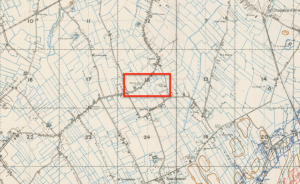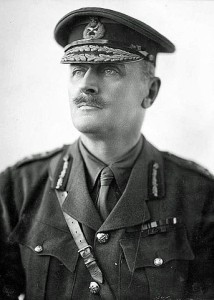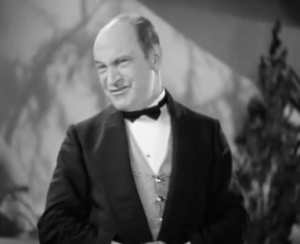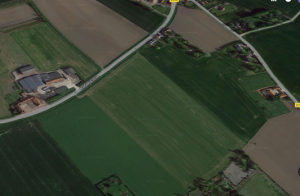Monthly Archives: December 2017
11th December 1917 Tuesday
Some morale boosting news
All material produced or reproduced here and throughout this work is the sole copyright of the author and the family of Doctor D.C.M. Page MC
“On the 11th December we trudged up to the trenches again, and heard that Jerusalem had fallen.
One day fourteen German aeroplanes flew over our lines, and were speedily attacked by four of our fast fighting planes. One Bosche was chased by 3 of our lads and brought down in flames. The machine crashed to earth in 3 pieces, and the old Hun himself came down about 5 minutes later! It was a great night. The other 13 enemy planes fled!”
Far from the Western Front, the Ottoman 7th and 8th armies under the command of German General Erich von Falkenhayn had been forced into retreat. The Battle for Jerusalem had begun on the 17th November with the British under the command of General Edmund Allenby. The coastal ports suffered from a lack of infrastructure, making unloading of supplies slow, hazardous and laborious. Allenby had to weigh up his options carefully. So far from their base, failure to keep his troops and horses supplied with rations and equipment could have proved disastrous. Failure to subdue von Falkenhayn’s armies would also leave Allenby vulnerable to counter attack. This would be both militarily and politically calamitous and could have seen Allenby relieved of his command, but he was victorious and on the 11th became the first Christian leader to rule Jerusalem since the middle ages. Fighting continued until the end of December, but the news of Allenby’s triumph over the German commander was greeted warmly at home and on the Western Front.
Find out about our connection with Dr Page and an introduction to his diary here
10th December 1917 Monday
A Monday night concert and mistaken identity.
All material produced or reproduced here and throughout this work is the sole copyright of the author and the family of Doctor D.C.M. Page MC
“On the night of the 10th the ‘Welsh Wails’, our new divisional concert party made their first appearance in the local cinema house. The place was packed to the door, and it was an excellent show from start to finish. There were 8 in the company, and they were very artistically got up in blue costumes, and tam-o-shanters with big red ‘toories’ on them. Lt Eric Blore, of the South Wales Borderers, was O.C., and put up a great show himself. He was a big man in London theatrical circles, and married Jessie Winter, the actress.”
It seems nothing was more popular than the concerts put on for the men whenever they could be arranged. The war had seen many of the famous male artists of stage and the fledgling movie industry absorbed into the forces. Young Eric Blore a Lieutenant in the South Wales Borderers was an actor that would later go on to find fame in Hollywood. In 1923 he made his way onto the Broadway Stage and firmly established himself as an accomplished actor. His work with Fred Astaire saw him introduced to the movie industry and he went on to appear in more than eighty films, working again with Fred Astaire and his stage partner Ginger Rogers. He would often play the part of the archetypal English butler and you can see him here with Fred Astaire, playing the butler in “The Gay Divorcee” in a movie of the stage play that got him his break.
Douglas for some reason got his facts mixed here in the diary with his mentioning of Blore’s wife Jessie Winter. Eric Blore in fact was newly married at the time to Violet Winter who sadly died only two years later in 1919. They had a daughter also called Violet. He remarried in 1926.
Eric Blore died in Hollywood in 1959 aged 71, but his death wasn’t without controversy. Somewhat jumping the gun the British theatre critic Kenneth Tynan referred in the “New Yorker” to the late Eric Blore”. Blore’s lawyer angrily demanded a retraction. The New Yorker had held a proud record of never having to print a retraction as they were careful to double check all their facts and the furious editor fearing a lawsuit forced Tynan to write it, sheepishly appearing on the news stands with a full front page retraction. Blore in a seeming fit of pique then duly died anyway, so while the rest of the press appeared with news of his demise the New Yorker appeared apologising for reporting his death. Pure showmanship!
Find out about our connection with Dr Page and an introduction to his diary here
3rd December to 7th December 1917 Monday to Friday
Back up the line
All material produced or reproduced here and throughout this work is the sole copyright of the author and the family of Doctor D.C.M. Page MC
“We returned to the front line on the 3rd December, being shelled very badly on the way up. We went back to Erquinghem for 4 days on the 7th.”
As if resuming the mundane routine of the working week, Douglas and his men of the 13th Btn., RWF headed back to work. Work of course was fighting the German army from the cover of the trenches, but unlike those at home heading for the mines, factories and mills etc., Douglas and his men went to work under heavy shellfire.
Uncomfortable at Streaky Bacon Farm, the move along the road to Artillery Farm could have been another life saver for Douglas. Although Streaky Bacon is clearly marked, could it be that “Artillery Farm” was actually Gunner Farm? Look at the map to see that it’s in the right vicinity.

1917 map showing Streaky Bacon Farm and Gunner Farm to its right. British trenches bottom right. Reproduced with the permission of the National Library of Scotland. https://maps.nls.uk/index.html
Find out about our connection with Dr Page and an introduction to his diary here


